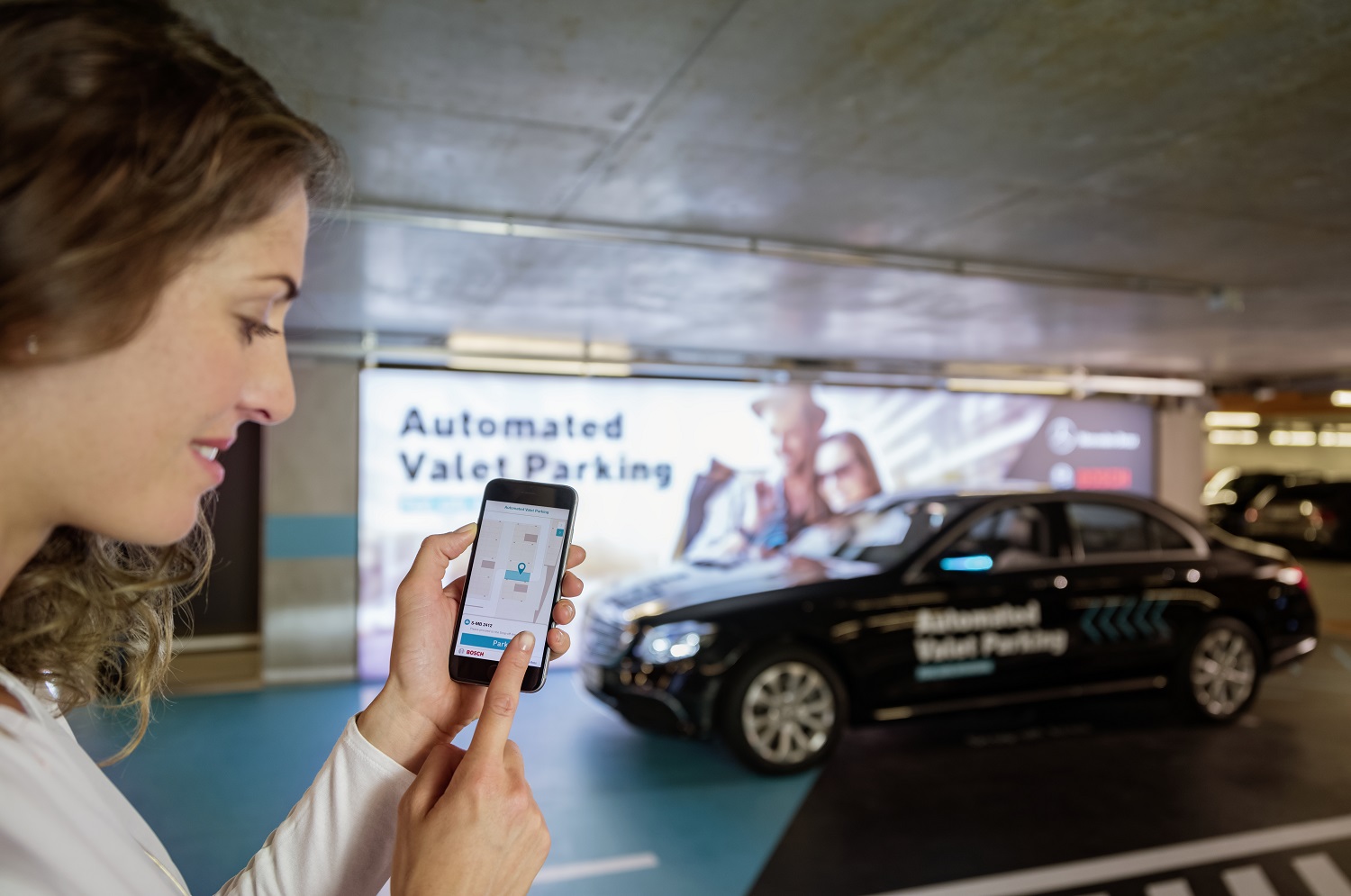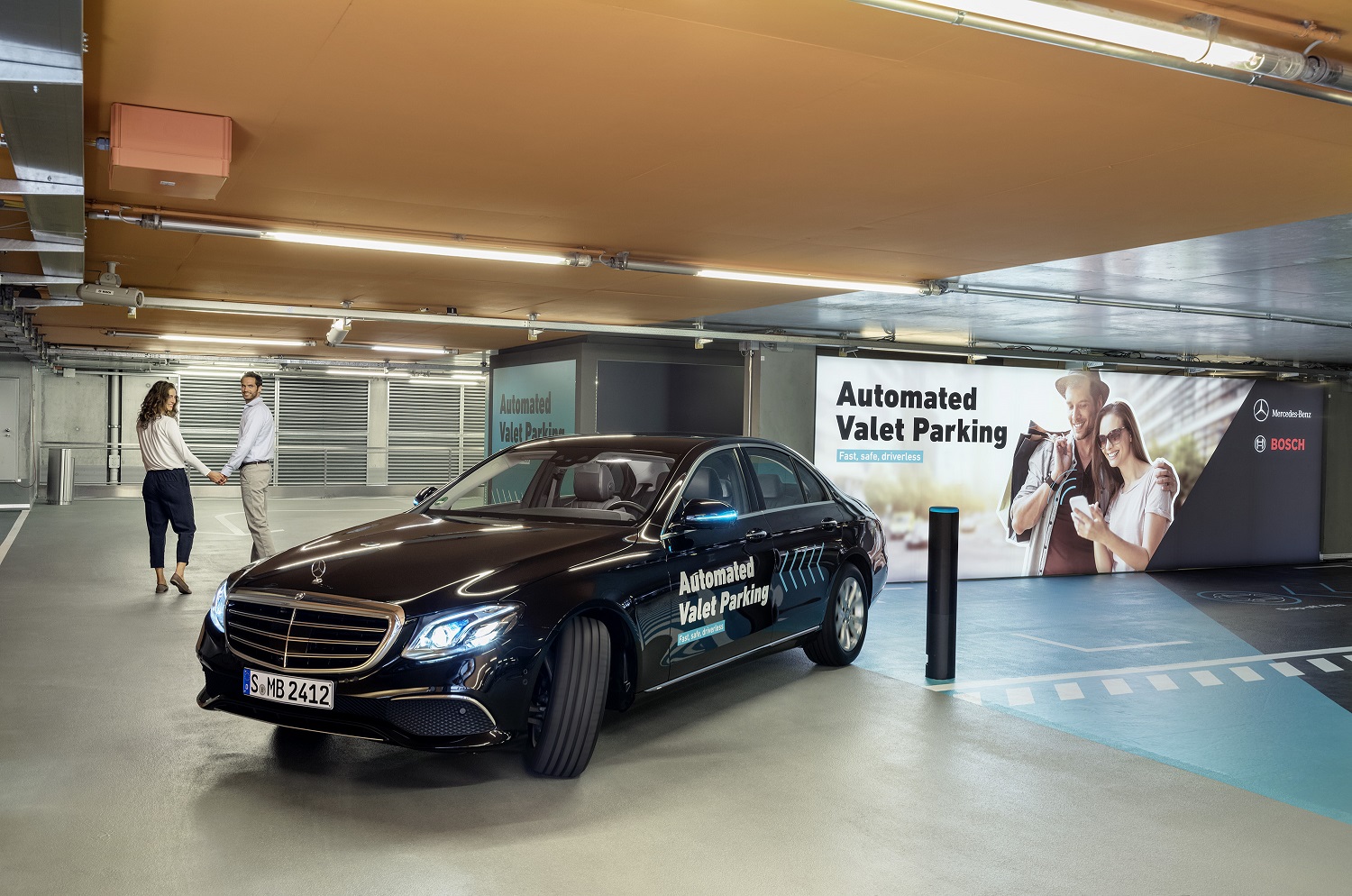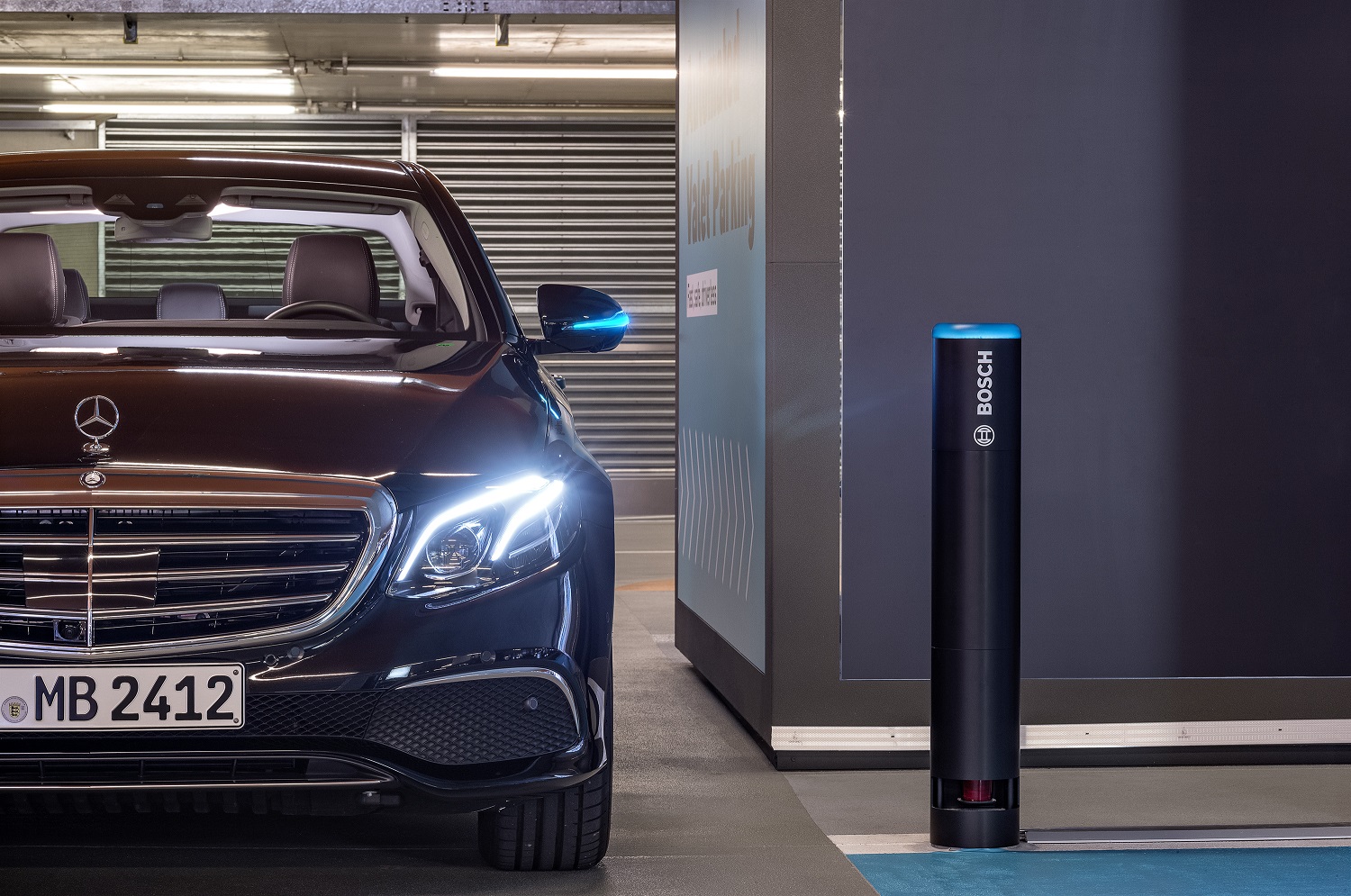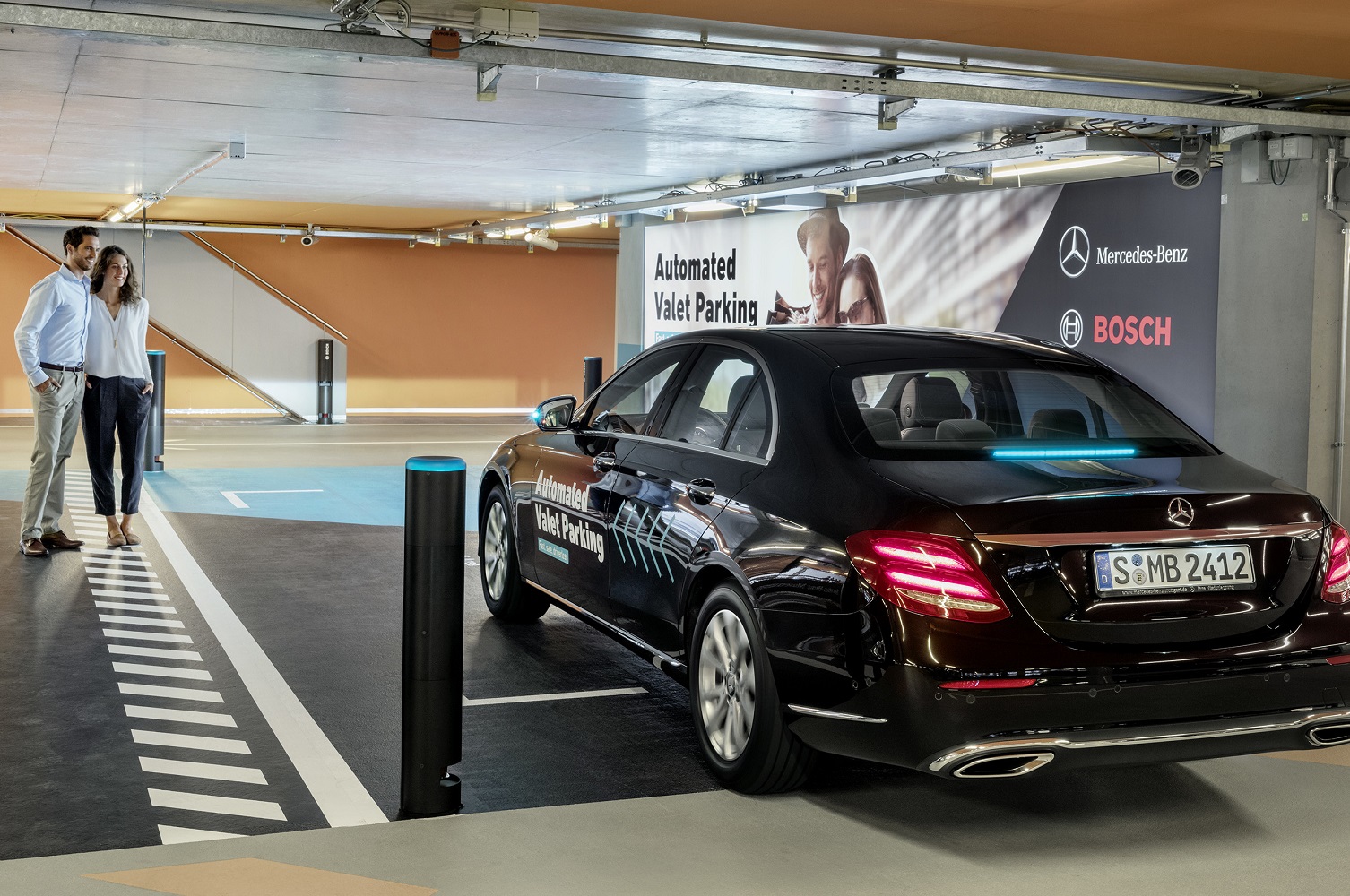Mercedes-Benz parent company Daimler enlisted the help of Bosch to develop and roll out a technology that promises to make looking for a parking spot completely obsolete. The company started testing its smartphone-based automated parking feature at its official museum in Stuttgart, Germany. This small step represents a significant milestone for autonomous technology, and it paves the way for further advances.
You’ll know exactly how the technology works if you’ve ever left your car with a valet. The main difference is that the car parks itself, so you don’t need to worry about someone testing your ride’s acceleration, or about leaving a tip.
Museum visitors drive into the multi-story parking garage, leave their car in a designated spot, and send it away after tapping their phone’s screen a few times. They’re free to walk into the museum and take in over a century’s worth of automotive history. Meanwhile, the future is at work.
Infrastructure technology provided by Bosch assigns the car a parking spot. Internet-connected sensors scattered throughout the parking garage guide the car every step of the way, allowing it to go up or down several levels if needed, and help it neatly park itself where it’s supposed to. The car stops immediately if it detects an obstacle, such as someone walking in front of it, or another car backing out of a nearby spot.
Picking up the car is as simple as reopening the app and summoning it back to the exact spot where it was dropped off. The whole process happens without a human driver behind the wheel; it corresponds to Level 4 autonomous technology, which is a step below full autonomy, and two steps above most of the driving aids currently on the market (like Tesla’s Autopilot).
Mercedes-Benz isn’t the only automaker testing this automated parking technology. Archnemesis BMW is experimenting with it, too, and Digital Trends saw it in action at the company’s Munich headquarters in June 2019. However, Mercedes-Benz is the first automaker to gain government approval to make the technology available to the general public. The catch is that you’ll need to drive a late-model Mercedes-Benz to the company’s museum to experience it in person, but we expect a much wider rollout in the coming years.







